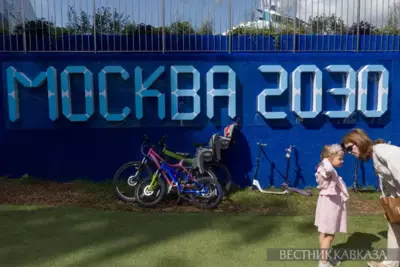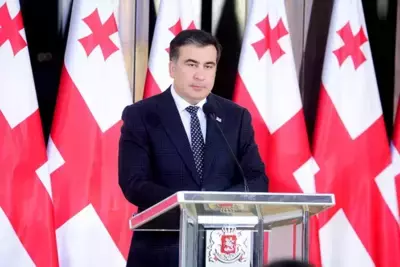The International Criminal Court began investigation of crimes committed during the war conflict in Georgia on the territory of South Ossetia during the period of July 1st – October 10th 2008. The Court believes that crimes may have been committed in South Ossetia, which fall within its jurisdiction – forced resettlement of people, attacks at the civilian population, murders, plunder. Moscow and Tbilisi have already stated that they intend to cooperate with the Court on the issue actively. Russia has already sent materials of investigations of the Investigative Committee of Russia on crimes committed during the conflict in South Ossetia to the International Criminal Court; while Georgia plans to do it in a month. According to the Georgian Minister of Justice, Tea Tsulukiani, after the end of the process, Georgia should start a process of “restoration of trust with our Ossetian brothers and sisters.”
Meanwhile, at a press conference on the results of 2015, Russian Foreign Minister Sergey Lavrov also supported the idea of normalizing Russian-Georgian relations. “The Georgian people must not pay for the rupture of ties with their Russian neighbours. Georgians and Russians are interested in these ties. It is unfair to have to pay for the criminal mistakes of former Georgian president Mikheil Saakashvili. We were not the ones to break off diplomatic relations. We acted fully in keeping with the standards of international law, including those that are stipulated in the declaration on the principles of relations between states that I mentioned earlier, whereby territorial integrity and respect for the territorial integrity of states imply that this state ensures the rights of all of its people and the unacceptability of using force to compel these people to remain within the state in question. All of these principles were grossly violated by Saakashvili,” the Minister said.
According to Lavrov, “after the attack on South Ossetia, on his own citizens and on the Russian peacekeepers, Mr Saakashvili was defeated by Russia and the self-defence forces. Having lost hope in deciding their fate (there were a lot of options during these years, including federation and confederation) through negotiations, South Ossetia and Abkhazia declared independence. We had no other option, no way out but to recognised their independence to ensure the security and survival of the South Ossetian and Abkhaz people. This is not a matter of debate but, to reiterate, this was the result of Mr Saakashvili’s criminal policy. He is notorious for such provocations, which, as we understand it, are organised on his own initiative, but quite often also on his express orders.”
The Russian Foreign Ministry is pleased with the fact that the Geneva discussions are ongoing. “We are concerned with security issues to prevent such recurrences in the future. There are some ideas that enable all the parties to the Geneva talks to subscribe to a document that will guarantee against such recurrences in the region. Naturally, we are interested in the Geneva discussions on humanitarian issues, including the repatriation of refugees and displaced persons. The humanitarian efforts are stalled by Georgia’s ongoing moves to submit to the UN General Assembly a [draft] resolution on the problem of refugees and displaced people unilaterally.
We are willing to discuss this at the UN but with the participation of Abkhazia and South Ossetia, as they are in fact the target of the demands in the resolution that Georgia is promoting at the UN. They are absent, because they are not allowed: our US colleagues deny them visas, even though representatives of unrecognised Kosovo not only receive visas but are granted most favoured treatment on UN territory. How’s that for double standards?” the Russian Minister asked.
He stressed that bilateral ties with Georgia are now emerging from a state of deep freeze: “Contact was established between the veterinary and plant disease oversight services and, to our mutual satisfaction, the trade in drinks and foodstuffs has resumed. There are ongoing talks with Gazprom… We do all we can to facilitate humanitarian ties, even when, after the breaking off of diplomatic relations with Georgia, we had to introduce visas and tighten visa requirements, largely because the terrorist threat coming from the Pankisi Gorge still exists. Incidentally, even now there are reports that ISIS is using this hard-to-access territory for training, recreation and replenishment of supplies. Normalisation of our ties is reflected in the recent easing of visa requirements, whereby business, work, study and humanitarian visas are issued regardless of the circumstances. Even a private visa does not require an invitation from family members. A friend can invite you and you will receive a visa. We are willing in the future to lift the visa requirement. It would be a little strange to discuss this at a time when we have no diplomatic relations, but, to reiterate, we did not break them off.”
Lavrov also pointed out that recently Russia also managed to resolve a number of issues concerned the registration of property rights on Georgia’s diplomatic mission in Moscow and Russia’s in Tbilisi. We have the Grigory Karasin/Zurab Abashidze format that allows us to discuss any issue. “They know each other well and have trustworthy relations that allow them to discuss anything. Incidentally, I’m open to contact with my Georgian counterpart. I’m sure other contacts are possible as well. When asked about this, Russian President Vladimir Putin did not rule out any opportunities at all, if the occasion arises,” Lavrov reminded.
















